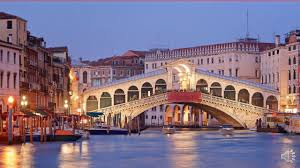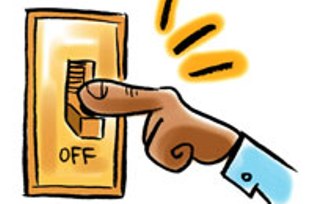Climate Change And Mental Health : Part 1
Hello
readers!
Here’s
to hoping you are well and all is swell.
Today we
tackle a topic that touches many.
Climate
change and mental health.
The
World Health Organization, or WHO in short, as from October 2016 declared a
whole year to raise awareness and campaign against depression using the
campaign #Let’s Talk.
Depression
it seems is the most prevalent mental condition, affecting about 300 million
people globally according to WHO. There are however other conditions like
bipolar, dementia, PTSD or schizophrenia.
So
today, we are going to discuss how climate change can cause, worsen or compound
depression and these other mental health conditions.
To start
with, let’s go back to basics.
Climate
change is essentially a result of a warming globe, because of a manmade
increase in greenhouse gases.
Rising
temperatures as in slowly rising temperatures or heat waves can cause mental
health issues. More than usual. A heat wave is especially bad for people with
already existing mental health conditions or so research suggests.
Today,
we are going to take a slightly different path in this blog post. I am going to
tell a story, so seat yourselves ladies and gentlemen, we are going to have a
little tête-à-tête.
Get a
cuppa, get cosy, dim the lights and follow my voice …….
 |
| Get yourself a warm cuppa. |
Scenario one:
Let’s
say a community relies on the Earth to earn a livelihood, eke a living. They
are farmers or pastoralists or maybe wildlife rangers or charcoal merchants or
something or the other that depends on the Earth.
As a
result of climate change, the old dependable weather patterns are affected. In
a certain year, the rains are depressed; there isn’t enough rain to support a
crop of wheat for example. So that entire harvest is too little. The farmer,
let’s call him Kiprop, sits down and does some math. He counts the money he
used to prepare the land, buy seeds, buy farm inputs, weeding and labour. He
fathoms that the harvest was maybe just enough to feed his family until the
next season. The little left over isn’t enough to kidhi mahitaji /cater for his family’s needs. That mean his kids
might be sent home for lack of school fees, his wife’s dressmaking service
might have to step in and shoulder the weight. Kiprops’s property might even be auctioned by
the bank because he has not repaid the loan he took to service his farm in
order to get a bountiful harvest.
So
Kiprop’s world comes crashing down, all over him. He becomes a distressed man.
Societal pressures dictate that he should provide and protect his family.
Clearly, he is unable to. Kiprop feels
like he has failed as a man. He becomes depressed. He takes to drinking as
consolation. He might even become alcohol dependent. His family too is affected
by the failed harvest. This is compounded by Kiprop’s drunkenness. There are a
lot of quarrels. Kiprop’s life has become ruined.
But what
he doesn’t know is that he might just rise from the ashes, because his clever
daughter, Chemutai, somehow managed to clear college and get a fine job. She
takes care of her dad and teaches him smart agriculture.
Kiprop
eventually gets back on his feet but after having tasted the bitter side of climate change. He
is now wiser and a community educator on the phenomenon. He holds weekly
gatherings at the village baraza/meeting
place to educate his fellow wheat farmers and craft solutions on
adaptation.
Scenario two
The
Omondis are a well to do middle class family in the (formerly) green city in
the sun, Nairobi. They both have good jobs and the children, Awuor and Othieno
are teenagers attending a private upscale school. One day the Omondis decide to buy their own
house , they are tired of paying rent to unpredictable landlords who don’t
offer services equaling the money required. So they get an agent and go house
hunting. One day, they hear of this apartment block whose individual units are
up for sale. The place is centrally
situated and near good malls and roads.
The rooms are spacious and there
is ample parking. And joy of joys, they can hear a small stream gurgling
nearby. There’s even a bit of a lawn! Not bad, they decide. There is even a
discount for the very first ten buyers. The Omondis make a quick decision. They
withdraw their savings and buy the house on the ground floor, the one on the
right, where the sound of the gurgling stream can soothe you back to sleep when
you wake up at night.
All is
peachy for a few years.
Then one
fine day in August, as Mr. Omondi is driving back home after work, it rains so
heavily such that there is traffic gridlock extending for miles. He’ll be home
late. He tries calling his wife but the calls keep on being dropped. He wonders
why but isn’t excessively worried. After all, it doesn’t rain so much in August
if at all. He knows the kids are out on a school trip and will be back on the
day after next. But why isn’t his wife picking calls?
Eventually
Mr. Omondi arrives home. Except that he doesn’t. He parks right outside the
apartment block, next to several other cars. As he gets out, he identifies his
neighbour’s Range Rover Evoque parked next to him. He gets out of the car worriedly
and immediately notices that there is a commotion at the gate. People are
protesting to be let in but the grounds manager won’t accede. The situation
becomes chaotic. The man lets them in after being threatened with police, jail, financial ruin, hellfire and brimstone.
Mr. Omondi sets about finding his wife who he eventually finds a few meters
from their submerged house. She is staring at what used to be their lovely
abode, and gives him a vacant look when he calls her by name.
Mr.
Omondi being the methodical man he is, puts emotions on the backburner and
starts assessing the damage. He had taken out two mortgages on the house. He
had just bought some shares in a startup recently hoping to cash them in a few
years’ time when the company would be giant-esque . He is now financially
ruined. He puts up his family in a friend’s house for a few days. Mr. Omondi or
Pete as his friends know him, along with some of the other owners of ruined
houses sue the developer who sold them the property.
Mr. Omondi blames the fates.
But
mostly, he blames himself.
He
should have known. The house was on a river bank. But the place had been
fortified. And it hadn’t flooded in 50 years or so he had been made to believe.
He should have investigated thoroughly. But he did! The area was certified good
by the county council. And the rains are so regular and predictable. And that
price! Thoughts are racing in his head. Now he has to pull out his kids from
that shiny school. His wife tries to cope. Jane Omondi is a tough lady. She
holds up the family while her husband takes to drinking privately to assuage
his misery. She talks to the kids, makes them understand they’ll have to help
out around the house and get used to sharing rooms, now that they have gone
back to the overcrowded estates. She consolidates the rest of her income and
pays rent for the next one year. She joins a chama/financial self help
group and thanks God that her kids
will be done with high school that year. As for college, by then she’ll have
figured out something.
Mr.
Omondi however can’t seem to be able to deal with the fact that he had to go
back a rung or two. His status and reputation is ruined. He can’t haunt his
favourite joints anymore. He can’t keep the company of his suburban friends
anymore. He has to sell his prized Mercedes at half the price. He had to visit
a Shylock more than once. He feels ruined and worthless. Sometimes he doesn’t
see why he should try. It is a task to put one foot in front of the other.
Alcohol is solace for his black moods. It gives him the drive to continue. It
balances him. It makes him feel good. But it is also ruining him.
Jane
Omondi is made of tough stuff. She resolves to do everything in her power to
hold her family together. One day, when her husband is sober, she talks him
into joining rehab. She has heard of a good place with holistic treatment and
good facilities. But it’ll cost an arm and a leg. She is determined to give it
a shot though. By a stroke of luck, they win the court case and are awarded
damages. With some of the money, she pays for her husband’s rehab and with the
rest she pays for a course in climate change and planning which she chances
upon when researching on the reason why their former home went under. She also
does another short course in counseling. Both turn out to be good choices. Mr.
Omondi slowly claws his way out of that dark hole and starts showing sparks of
his former go getter self. Mrs. Omondi applies for a better paying job and gets
it. Eventually, with new found knowledge and experience, she starts a climate
change consultancy. She also opens a community centre for substance addiction
and counseling.
Both
ventures flourish.
The
Omondis are back in business, wiser and the better for it.
Hello!
Switch on the lights someone, we need to take a toilet
break. Be back in two. Or four minutes with part two.




Comments
Post a Comment